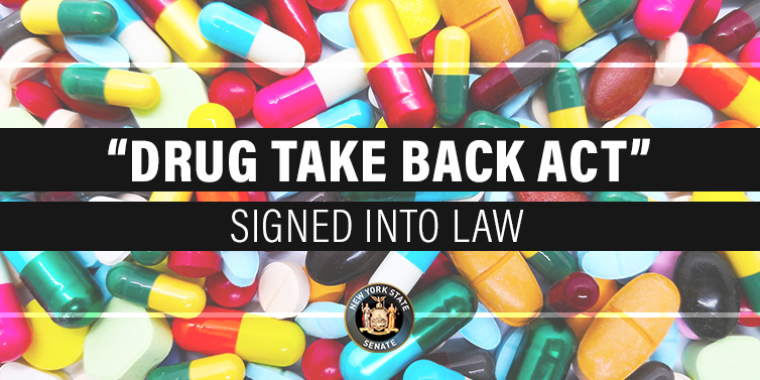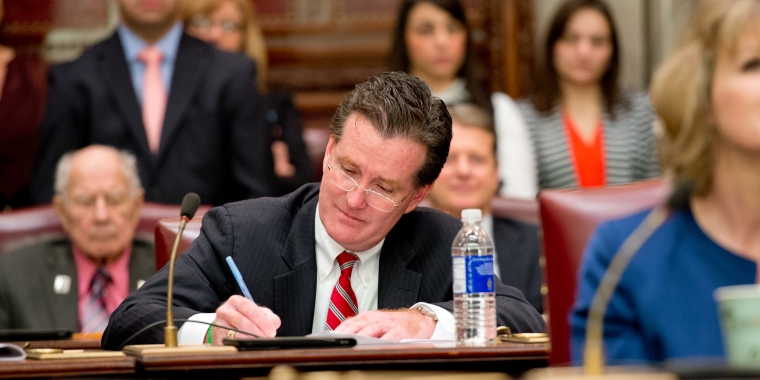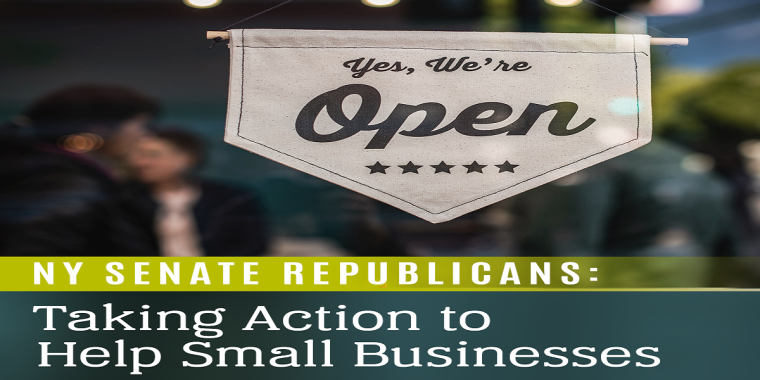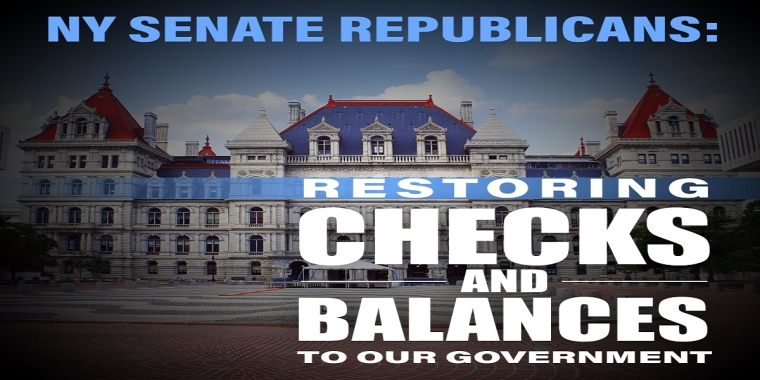
New York State Senate’s “Drug Take Back Act” Becomes Law
July 11, 2018

Senate Majority Leader John Flanagan (2nd Senate District) announced that the “Drug Take Back Act” has been signed into law. The measure establishes a unified statewide drug take-back program that will reduce medication misuse, and save government and taxpayer money. The bill (S9100, Chapter 120) sponsored by Senators Kemp Hannon (6th Senate District) and Tom O’Mara (58th Senate District), will also protect the state’s water supplies by preventing drugs from being improperly disposed of by flushing or other means that result in contamination of water bodies and negatively impact aquatic life.
“As parents, teachers and police continue their work to protect our kids from drug abuse, it is vital that we make sure that pharmaceutical companies do their fair share to protect our most vulnerable. This new law will help stem the flow of drugs in our community while also protecting our waterways and that is a victory for everyone. Senators Hannon and O’Mara deserve our deepest appreciation for continuing their effort to make sure this important law became reality,” stated Senate Majority Leader Flanagan.
Senator Hannon, Chair of the Senate’s Health Committee, said, “I'm pleased this important measure, which was originally included in the Senate one-house budget this year, has finally been signed into law. This legislation will take drugs out of the medicine cabinets and will prevent drugs from polluting New York’s waters.”
Senator O’Mara, Chair of the Senate’s Environmental Conservation Committee, said, “It's incredibly important to do anything and everything we can to complement and support the efforts of local law enforcement and other community leaders to combat prescription drug abuse. These efforts include National Prescription Drug Take-Back Days and other initiatives like this one to facilitate the collection, and safe and responsible disposal of unused medications. This new law will greatly expand the number of permanent, locally based drop-off locations. It will be a very positive, cost-effective addition to the state's ongoing, overall strategy to protect our communities and local environments.”
Last year, Governor Cuomo vetoed a bill (S6750) that would have helped expand existing drug take-back efforts, stop more opioids from getting into the hands of abusers, and prevent the contamination of the environment. In response, Senators Hannon and O’Mara successfully led the effort this year to create a unified, statewide drug take-back program that saves taxpayers the money spent on programs currently operated by law enforcement agencies and public officials, and helps reduce medication misuse and improper disposal.
The Drug Take Back Act will help give manufacturers of pharmaceutical products responsibility for costs of the take-back program, with focal points being public education and awareness, as well as drug collection, transport, and destruction. Under this new law, chain and mail-order pharmacies will be required to provide consumers with collection options, including drop boxes and prepaid mail-back envelopes. The measure will also ensure rural, urban, and other underserved communities have access to ongoing collection services so that all persons have reasonable access to locations to dispose of their drugs and prevent over-saturation in higher populated areas.
The new law is critical to the state’s ongoing efforts to reduce drug abuse because one of the most common ways for opioid addictions to start is when individuals have access to leftover prescriptions, whether it be theirs, a friend’s, a relative’s, or someone else’s. By increasing New Yorkers’ opportunities to properly dispose of unused drugs, the potential for abuse and addiction is decreased.
In addition, proper disposal helps protect the state’s water supplies because fewer people would improperly dispose of drugs by flushing them down a toilet or using other means that result in water contamination.
Last year, the Senate led the way in securing a historic $2.5 billion investment to improve and protect water resources, and keeping drugs out of water supplies is another important and necessary step.



